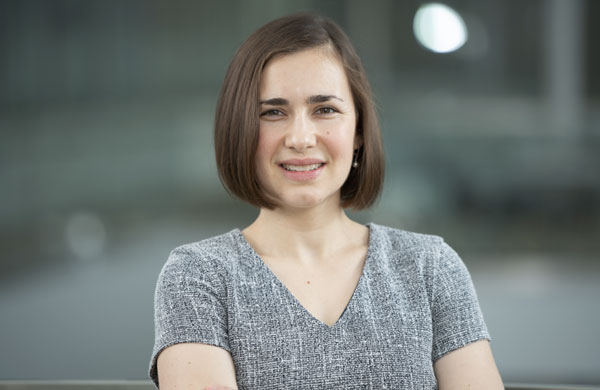Erica Berlin Baller
MD ’15
Attending Psychiatrist, Division of Consultation-Liaison Psychiatry
T32 National Research Service Award Postdoctoral Fellow, Division of Neuropsychiatry
Department of Psychiatry, University of Pennsylvania (Philadelphia)
Age 39
My Greatest Accomplishment:
Being accepted into the Drexel College of Medicine. I was a nontraditional student, majoring in computer science and graduating as one of only two women in my class. I was told I had a “slim-to-none” chance of ever getting into medical school. After five years of neuroimaging research, I was thrilled to get the acceptance letter from Drexel. Successfully navigating major transitions — from doing computer research to being a student again to becoming a physician scientist — has given me the confidence to further pursue my career of blending psychiatry and computer science.
How Drexel Helped Me:
My time as a medical student at Drexel profoundly shaped who I am. As a Program for Integrated Learning student, I learned the value of teamwork and leadership, and cultivated my skills as a teacher. Drexel grounded me in the importance seeing patients in the context of their families, environments and communities. I also developed extremely close bonds with my classmates, who have become lifelong friends.
Where I Hope to Be in Five Years:
I hope to direct a research program that specializes in translational consultation-liaison psychiatry. I have been inspired to pursue this field since my second year of psychiatry training. I learned that medically ill psychiatric patients are often excluded from clinical trials, leading to a dearth of evidence-based treatment to guide management, and I became committed to filling this evidence gap. My current research uses network neuroscience techniques to map brain diseases onto neural circuits. Then, I correlate neural circuit dysfunction with psychiatric and cognitive symptoms in patients with comorbid medical illnesses. I also plan to continue treating patients in the hospital to maintain my connection to those whom I hope will benefit the most from my research.
The Change I Would Most Like to See in the World:
My biggest hope is that mental health research funding, investment and treatment achieve true parity and equity with the rest of medicine. I would love to see inclusive research trials for psychiatric treatments that address heterogeneity due to medical illnesses. I also want to see investment from communities into services that support people living with mental illness, including safe housing, affordable and accessible health care, as well as access to nutritious food. Patients with mental illness are frequently stigmatized and vulnerable. Through a multipronged approach, I think we can really make a difference to improve outcomes.


